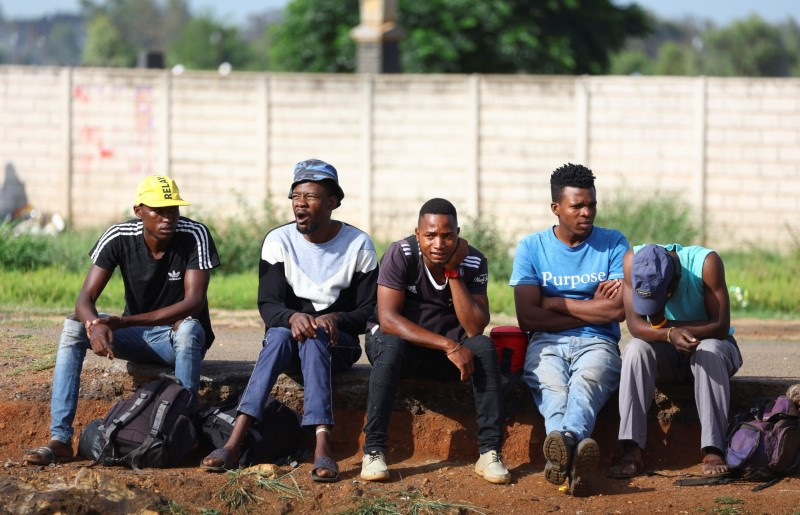In a disturbing trend that continues to unsettle economists and policymakers alike, South Africa’s official unemployment rate has surged for the third consecutive quarter, now standing at a staggering 33.5% for the April-June period of this year. This marks the highest level of unemployment since the government lifted COVID-19 restrictions back in Q2 2022. Yet, it still hovers just below the harrowing peak of 35.3% reached in the last quarter of 2021.
The grim reality is undeniable: job creation is failing to keep pace with the relentless rise in unemployment. “The number of jobs that are being created is not sufficient to address the unemployment crisis,” Statistician-General Risenga Maluleke stated during a media briefing, underlining the urgency of the situation.
As South Africa grapples with one of the highest unemployment rates globally, reducing this figure has become a top priority for the coalition government that came into power after the African National Congress (ANC) lost its parliamentary majority in May’s elections. President Cyril Ramaphosa, outlining his administration’s agenda for the next five years, emphasized the critical role that small businesses and the informal sector could play in driving job creation.
However, the path to significant employment growth remains fraught with challenges. Economist Sanisha Packirisamy from Momentum Investments highlighted a troubling disparity: while there has been a post-pandemic recovery in employment within highly skilled sectors, particularly in services, the same cannot be said for those in unskilled or semi-skilled roles. For these workers, any semblance of recovery has been negligible at best.
Packirisamy warns that meaningful job creation in South Africa is likely to be a slow and arduous process. “We do not anticipate significant job growth for the remainder of this year,” she cautioned, painting a bleak picture for the immediate future.
The broader unemployment rate, which includes individuals discouraged from seeking work, climbed to an alarming 42.6% in Q2, up from 41.9% in the previous quarter. The number of unemployed individuals rose to a staggering 8.384 million from 8.226 million over the same period.
In a particularly devastating blow to the labor market, five out of the ten industries tracked by Statistics South Africa reported job losses in the second quarter. The trade and agriculture sectors were hit hardest, with the hotel and restaurant sector alone shedding 87,000 jobs, making it the biggest contributor to the growing joblessness in trade.
South Africa’s economic future hangs in the balance as the nation grapples with these escalating challenges. The road to recovery appears long and uncertain, with millions of lives affected by the deepening unemployment crisis.

